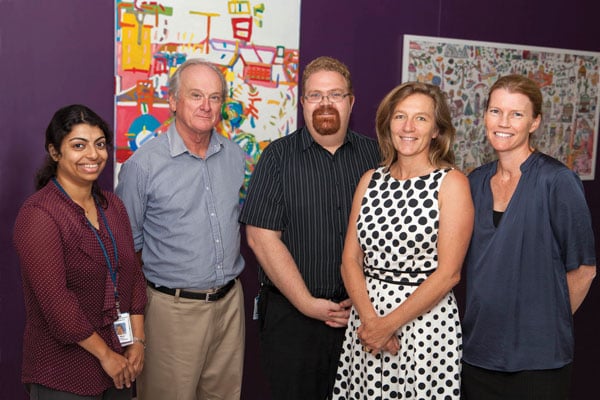Search
Showing results for "1"

News & Events
High hopes for preventing lowsResearchers led by the team at the Children’s Diabetes Centre at The Kids have taken a key step to a fully automated closed-loop insulin delivery system.

News & Events
Children with disabilities 3 times more likely to be maltreated but risk varies by disability typeA new study has found children with disabilities are 3 times more likely to be maltreated compared to other children but that risk varies by type of disability.
Research
A randomised-controlled trial of a behavioural intervention for optimising social and communication development in newborns at increased likelihood of autism spectrum disordersAndrew Kandice Matt Melissa Videos Whitehouse Watch and listen to Andrew Varcin Cooper Licari PhD M.Psych (Clinical), PhD BCA Marketing, BSc
Research
Developing a ‘Food Atlas’ for Western Australia to map, measure and monitor food accessThis unique interdisciplinary project, funded by Healthway, aims to develop a Food Atlas tool for mapping, measuring, and monitoring food access across Western Australia.
Research
Immunogenicity, otitis media, hearing impairment, and nasopharyngeal carriage 6-months after 13-valent or ten-valent booster pneumococcal conjugate vaccines, stratified by mixed priming schedules: PREVIX_COMBO and PREVIX_BOOST randomised controlled trialsAustralian First Nations children are at very high risk of early, recurrent, and persistent bacterial otitis media and respiratory tract infection. With the PREVIX randomised controlled trials, we aimed to evaluate the immunogenicity of novel pneumococcal conjugate vaccine (PCV) schedules.
Research
Short-course oral co-trimoxazole versus intramuscular benzathine benzylpenicillin for impetigo in a highly endemic regionThe major burden of disease is in developing and tropical settings where topical antibiotics are impractical and lead to rapid emergence of antimicrobial...

Everything you need to know to book an excursion at the The Kids Discovery Centre.

News & Events
Wal-yan respiratory researchers head to Milan to participate in international congressThe Wal-yan Respiratory Research Centre is proud to have a team of researchers taking part in, and contributing to, the outstanding scientific programme of the European Respiratory Society International Congress, taking place in Milan.

News & Events
Who are our mental health and school researchers and what do they do?A new ongoing Q & A series focusing on different research themes within the Children’s Diabetes Centre - focus: mental health and schools teams.

News & Events
Developing emotional regulation skillsThis blog aims to explore what emotions are, why they are important, and how we can support children to develop their ability to understand and express their own emotions in a healthy way.
